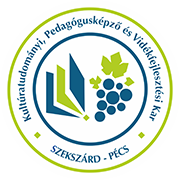Applied aspects of our research
Concluding remarks on the course, its objectives, findings and benefits
We, among other findings, have pointed out, based on scientific articles and cognitive linguistic analysis (cf. Forgács – Pléh (2022) doi: 10.1007/978-3-030-90688-7_22) that conceptual metaphors of climate change (e.g. global warming, co2 blanket) are often too positive to bring on determined action to quit and go the opposite way. They invoke too positive implications to trigger adequate social responses of immediate change, radical solutions and marked transformations in social behavior. Finding novel, more radical metaphors that truly mirror the level of danger in environmental problems can bring on social change and hence help adaptive greener thinking and environment-friendly behavior through the enlightened conceptualizations and offer new strategies to fight climate change.
Potentials of the joint course for future collaborations
Hence workshops on the topic can get students more involved; can trigger everyday practices and help them contribute to fighting climate change in their creativity by optionally joining Shoot4Earth initiative of 1-minute films that are themselves based on visual messages, dense conceptualizations that themselves function as visual metaphors (https://shoot4earth.org/). This could be a platform for conveying messages, that are instances and objects of scientific study themselves, and therefore, also serve as fruitful grounds of linguistic and pragmatic data-bases for further analysis. These workshops can be a meeting ground for further scientific collaboration between research groups internationally.



